 W
WAlexander Agricola was a Netherlandish composer of the Renaissance writing in the Franco-Flemish style. A prominent member of the Grande chapelle, the Habsburg musical establishment, he was a renowned composer in the years around 1500, and his music was widely distributed throughout Europe. He composed music in all of the important sacred and secular styles of the time.
 W
WJacobus Barbireau was a Franco-Flemish Renaissance composer from Antwerp. He was considered to be a superlative composer both by his contemporaries and by modern scholars; however, his surviving output is small, and he died young.
 W
WJan Belle was a Flemish composer from the Franco-Flemish School and a music theorist.
 W
WPeter Benoit was a Flemish composer of Belgian nationality.
 W
WAdrianus Petit Coclico was a Netherlandish composer of the Renaissance.
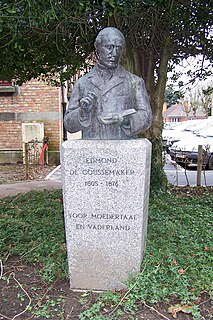 W
WCharles Edmond Henri de Coussemaker was a French musicologist and ethnologist focusing mainly on the cultural heritage of French Flanders. With Michiel de Swaen and Maria Petyt, he was one of the most eminent defenders of Dutch culture in France.
 W
WLodewijk de Bisschop, latinised as Ludovicus Episcopius was a Flemish Roman Catholic priest and composer of the late Renaissance and one of the first to compose secular songs in the Dutch language.
 W
WTheodor Evertz was a Franco-Flemish composer from the Renaissance.
 W
WHeinrich Isaac was a Netherlandish Renaissance composer of south Netherlandish origin. He wrote masses, motets, songs, and instrumental music. A significant contemporary of Josquin des Prez, Isaac influenced the development of music in Germany. Several variants exist of his name: Ysaac, Ysaak, Henricus, Arrigo d'Ugo, and Arrigo il Tedesco among them.
 W
WLéon Jongen was a Belgian composer and organist.
 W
WGilles Joye was a Franco-Flemish composer of the Renaissance. A member of the Burgundian school, he was known mainly for his secular songs which were in a lyrical and graceful style.
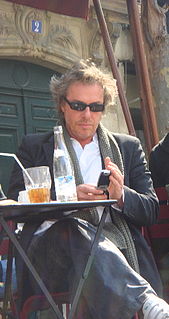 W
WNicholas Lens Noorenbergh is a Belgian composer of contemporary music, particularly known for his operas. His work is published by Schott Music and Mute Song and distributed by Universal Music Group and Sony BMG. In 2020 Nicholas Lens signed with Deutsche Grammophon.
 W
WAntoine Mahaut was a Flemish flautist, composer, and editor. He probably learned his trade from his father who was also a flautist, and entered the service of Bishop of Strickland at the age of fifteen, with whom he travelled to London. The composer returned to Namur in 1737, where he served the wife of Walter de Colijaer until 1739. Mahaut spent his early composing career in Amsterdam and Mannheim, and his middle to late career in France. His symphonic style is similar to Johann Stamitz, who most likely taught him how to compose, while he was at Mannheim. Mahaut influenced Joseph Haydn and Mozart. He was important as a symphonist in France and composed flute duets and trios and Dutch songs as well. He flourished in France, composing in a classical style and he died there in 1785 at the age of 65.
 W
WPhilippe de Monte, sometimes known as Philippus de Monte, was a Flemish composer of the late Renaissance active all over Europe. He was a member of the 3rd generation madrigalists and wrote more madrigals than any other composer of the time. Sources cite him as being "the best composer in the entire country, particularly in the new manner and musica reservata." Others compare his collections of music with that of other influential composers, such as Lassus.
 W
WJacob Obrecht was a Flemish composer of masses, motets and songs. He was the most famous composer of masses in Europe of the late 15th century and was only eclipsed after his death by Josquin des Prez.
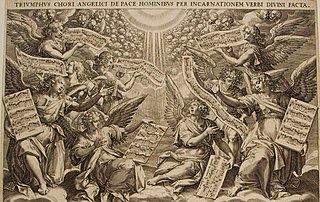 W
WAndreas Pevernage or Andries Pevernage was a Flemish composer of the late Renaissance and a choirmaster in Bruges, Kortrijk, and Antwerp. He was one of a few composers from the Low Countries who remained in his native land throughout the turbulent period of religious conflict in the late 16th century. He was a skilled composer of chansons, motets and madrigals.
 W
WCipriano de Rore was a Franco-Flemish composer of the Renaissance, active in Italy. Not only was he a central representative of the generation of Franco-Flemish composers after Josquin des Prez who went to live and work in Italy, but he was one of the most prominent composers of madrigals in the middle of the 16th century. His experimental, chromatic, and highly expressive style had a decisive influence on the subsequent development of that secular music form.
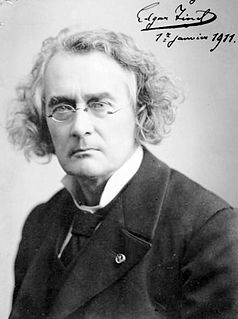 W
WEdgar Pierre Joseph Tinel was a Belgian composer and pianist.
 W
WJef van Hoof was a Flemish composer and conductor.
 W
WPeter or Pieter Vanderghinste or Van der Ghinste was a Flemish composer who worked in United Kingdom of the Netherlands.
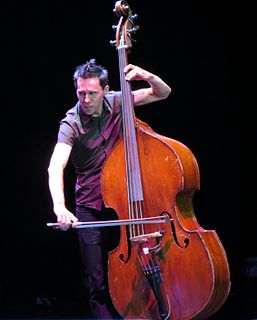 W
WJoris Vanvinckenroye, also known by his solo moniker BASta!, is a Flemish avant-rock and experimental double bass musician and composer. He is best known for Aranis, a neo-classical chamber rock group he founded and leads, and for his double bass solo project, BASta!.
 W
WArthur Hendrik Verhoeven was a Flemish composer and organist. Arthur Verhoeven, a student of August De Boeck a Lodewijk Mortelmans, was a sacristan-organist at the Saint-Cordula church in Schoten. As a composer, his main period of activity took place between 1910 and 1930, the year in which he finished his opera Valentijn. After this period of time, he mainly limited himself to rearranging previous compositions.
 W
WJacob Vredeman de Vries was a kapellmeister and composer of music in Leeuwarden. Jacques Vredeman published 12 villanelles in the West Frisian language.
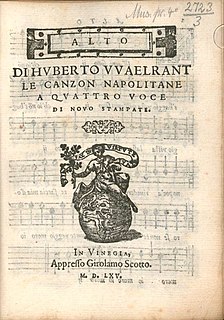 W
WHubert Waelrant or Hubertus Waelrant was a Flemish composer, singer, teacher, music editor, bookseller, printer and publisher active in 16th century Antwerp. He was a member of the generation of the Franco-Flemish School of composers who were contemporaries of Palestrina. Unlike famous composers of his time he mostly worked in northern Europe. His style is a transition between that of Nicolas Gombert and the mature Orlande de Lassus. His compositions were modern in the use of chromaticism and dissonance.
 W
WAdrian Willaert was a Netherlandish composer of the Renaissance and founder of the Venetian School. He was one of the most representative members of the generation of northern composers who moved to Italy and transplanted the polyphonic Franco-Flemish style there.
 W
WJoannes Zacheus was a composer of the Franco-Flemish School.